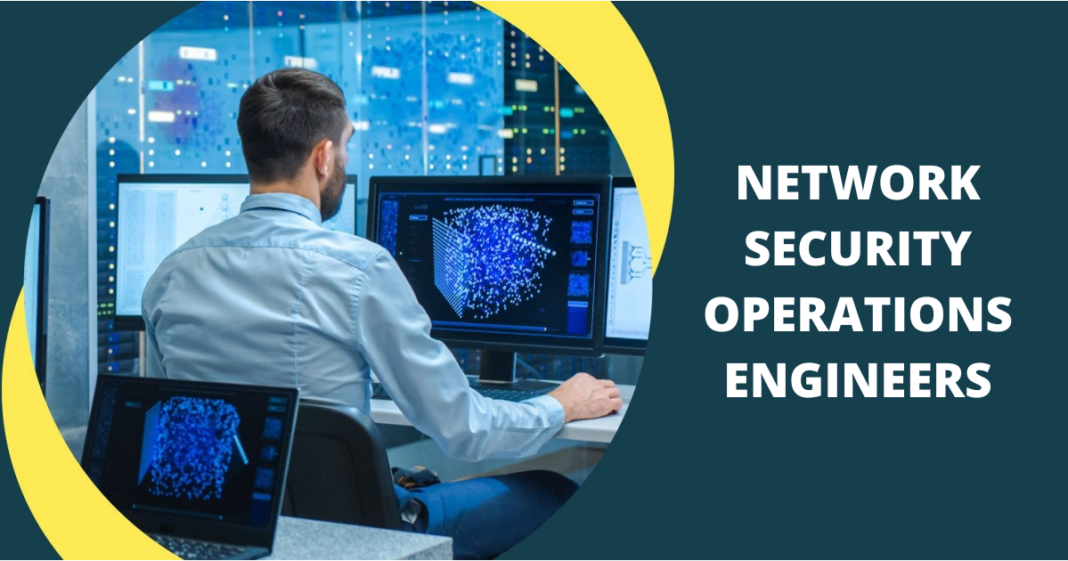NSOE, Inc. is a leading provider of cybersecurity solutions. The company’s software monitors networks for unauthorized access detect malicious activity and provides incident response capabilities. NSOE works with other departments within an organization to bolster cybersecurity efforts.
For example, NSOE can help identify vulnerabilities in systems and advise on best practices for securing them. This collaboration helps ensure that the organization’s data is safe and its systems are protected from attack.
NSOE is a part of the cybersecurity team and works with other departments within an organization to bolster cybersecurity efforts. NSOE uses its expertise in information security and cyber research to develop solutions that can be implemented by other departments within the organization. They also provide training and support to help employees understand how to protect themselves from cyber threats.
Computer security is an important part of any business. Engineers should train their teammates on the basics of computer security in order to help keep their businesses safe. In this article, we will discuss IP fundamentals, firewall maintenance, switch, and router management. These topics are essential for anyone working with computers and networks.
IP fundamentals are essential for understanding computer security. IP addresses identify devices on a network and can be used to identify users and malware. When configuring a firewall or router, it is important to understand the difference between an IP address and a hostname.
A hostname identifies a specific device on a network, while an IP address identifies all devices on a network using that address range. It is important to remember that not every device has an IP address! For example, printers usually have.
Computer security is an important part of any business. Engineers should train their teammates on the basics of computer security in order to help keep their businesses safe. In this article, we will discuss IP fundamentals, firewall maintenance, switch, and router management. These topics are essential for anyone working with computers and networks.
IP fundamentals are essential for understanding computer security. IP addresses identify devices on a network and can be used to identify users and malware. When configuring a firewall or router, it is important to understand the difference between an IP address and a hostname.
A hostname identifies a specific device on a network, while an IP address identifies all devices on a network using that address range. It is important to remember that not every device has an IP address! For example, printers usually have.
The various tools and technologies that NSOE uses to keep networks secure

Network security operations engineers use a variety of tools and technologies to keep networks secure. These include firewalls, intrusion detection systems (IDSs), network intrusion prevention systems (NIPs), and other security measures.
In addition to these traditional security measures, network security operations engineers also use virtual private networks (VPNs) and remote access services to protect data.
Engineers must have in-depth knowledge of LAN and WAN technologies in order to design, implement, and configure firewalls effectively. A firewall is a security device that controls the flow of traffic between devices on a network. The engineer must have a good understanding of how networks operate and how firewalls can be used to protect them.
In addition, the engineer must be familiar with the different types of firewalls and know how to configure them appropriately for each application or network. This knowledge is essential for ensuring network security.
Intelligence gathering and analysis in network security operations
Intelligence gathering and analysis are essential components of network security operations. Analysis can help identify vulnerabilities and threats, help establish baselines for in-depth monitoring, and provide early warning signs of impending attacks.
Effective intelligence gathering requires skilled analysts with the knowledge to locate relevant data sources and extract the most important information.
This information must then be evaluated for accuracy, relevance, and potential threat level. The goal is to provide a comprehensive understanding of the current state of the network environment so that appropriate action can be taken to protect the system.
What type of threats do network security operations engineers face on a daily basis?
How Network Security Operations Engineer NSOE prevent and respond to cyberattacks
Cybersecurity operations engineers are responsible for preventing and responding to cyberattacks. They work to protect networks and systems from intrusion and security breaches. Cybersecurity operations engineers use a variety of methods to detect and respond to attacks, such as monitoring logs, scanning networks for signs of intrusion, and blocking unauthorized access.
In some cases, they may need to take action to disable or remove malicious software from systems.
Breaking the Cyber Attack Pattern
Cybersecurity operations engineers are responsible for preventing and responding to cyberattacks. By breaking the attack pattern, they can reduce their exposure to potential cyberattacks.
In this article, we will discuss some essential security measures that network security operations engineers should take to protect themselves from cyber-attacks.
- Prevention is always better than reaction when it comes to cybersecurity. By understanding how attackers operate and knowing the common cyberattack patterns, you can prevent them from penetrating your network.
- Building a robust infrastructure is one of the key steps in protecting your company against cyberattacks. A strong defensive perimeter will help detect and block malicious attempts before they cause any damage.
- Establishing effective incident response procedures is also critical for mitigating the effects of a cyberattack. Having a plan in place will help you quickly restore normal operations after an attack has occurred.
Conclusion
In conclusion, the cyber security operations engineer must be proficient in the breaking of cyber-attack patterns. They must be able to recognize when a malicious actor is attempting to compromise their system and quickly respond with countermeasures.
Cyber security operations engineers are essential to protecting organizations from cyber-attacks. Post For Success team, the above information was gathered from Cyber Security Engineers.











